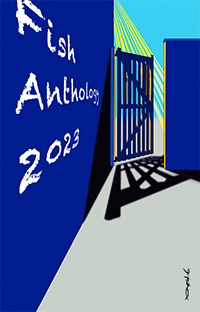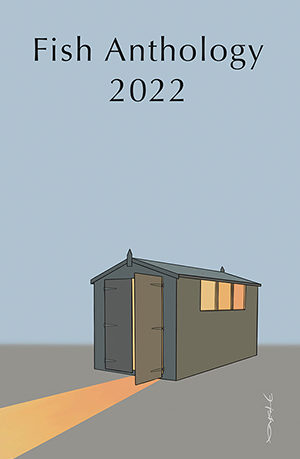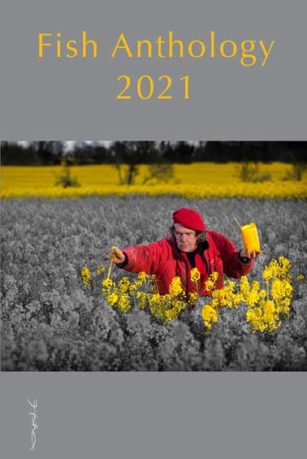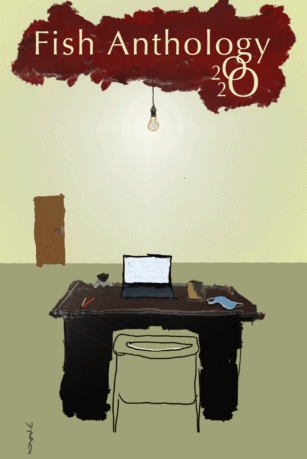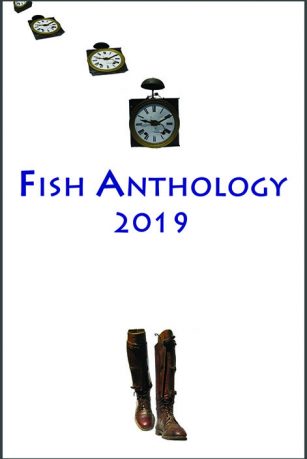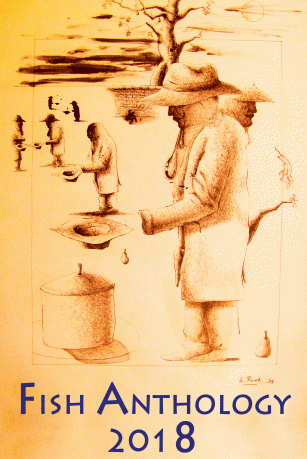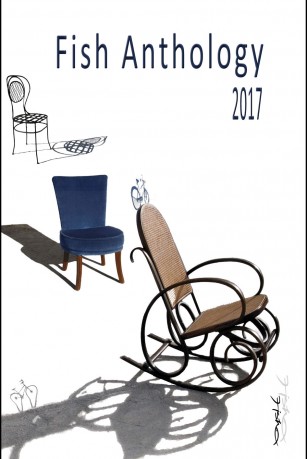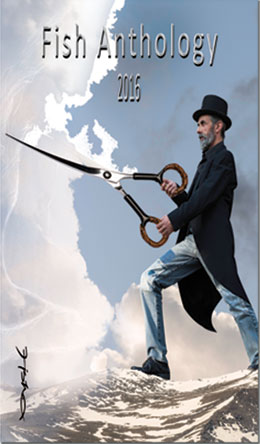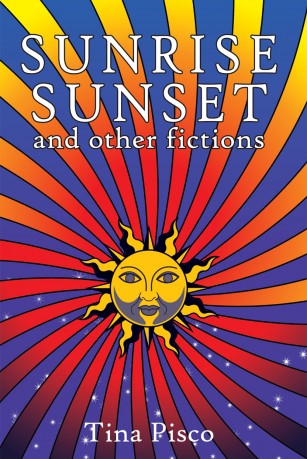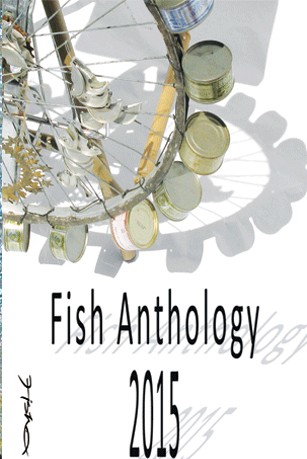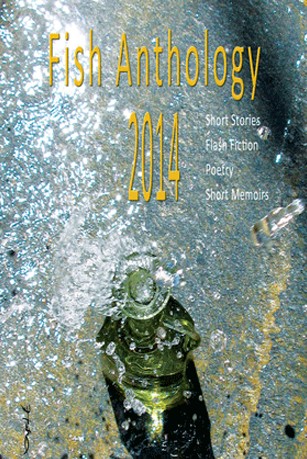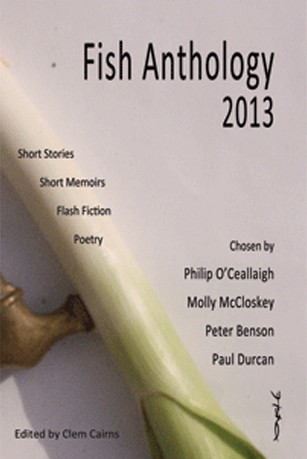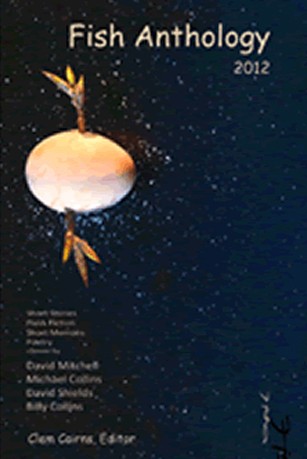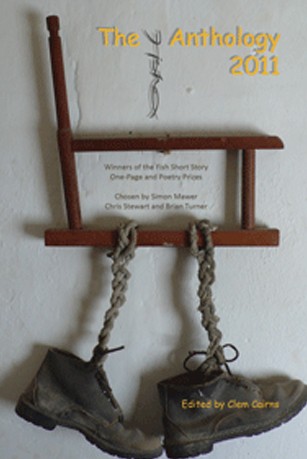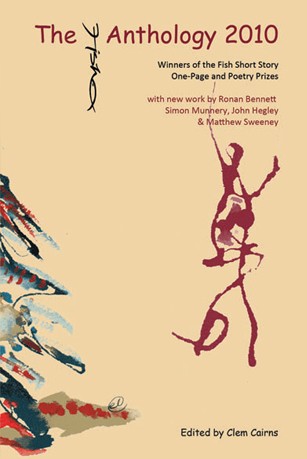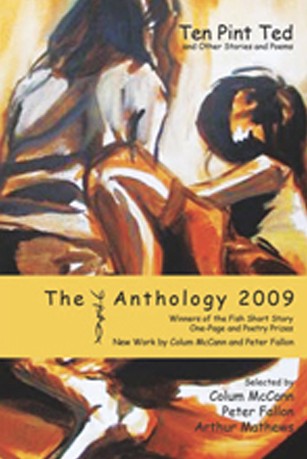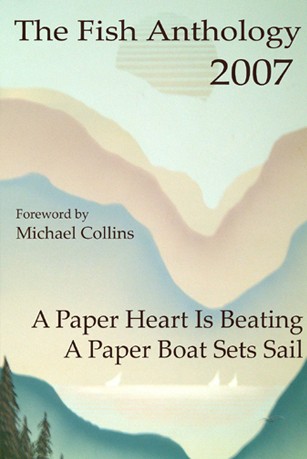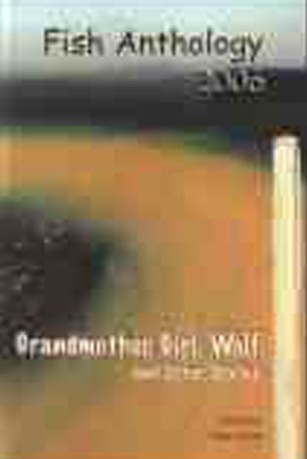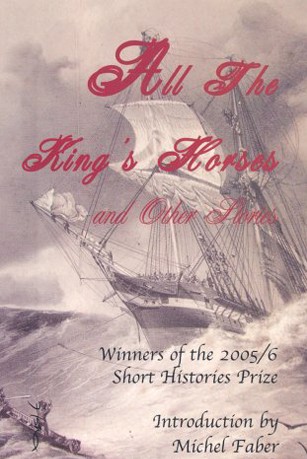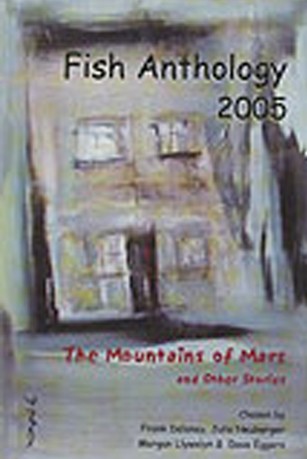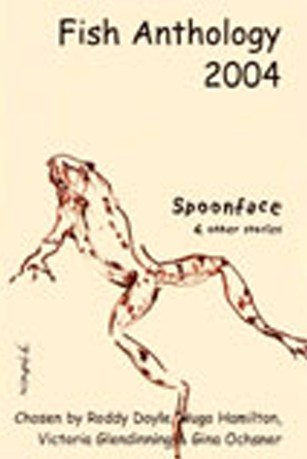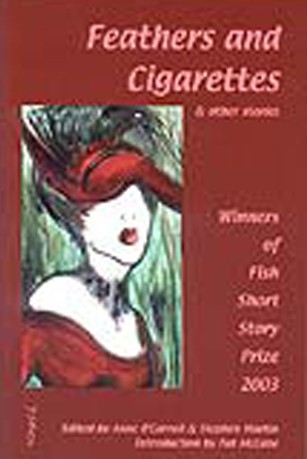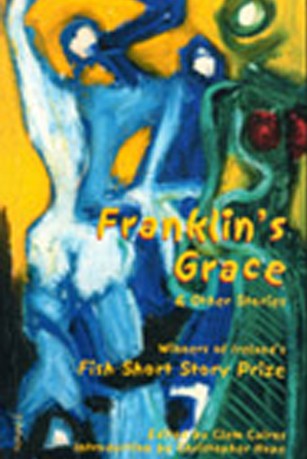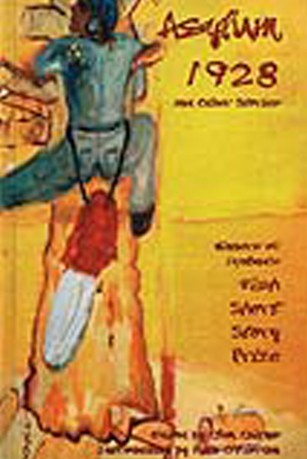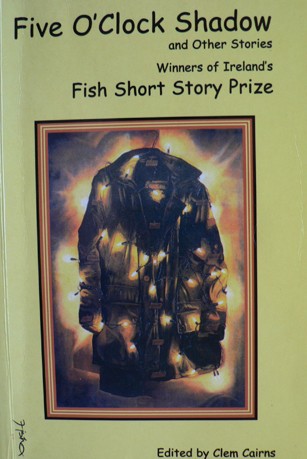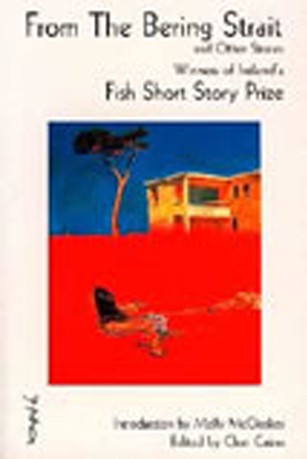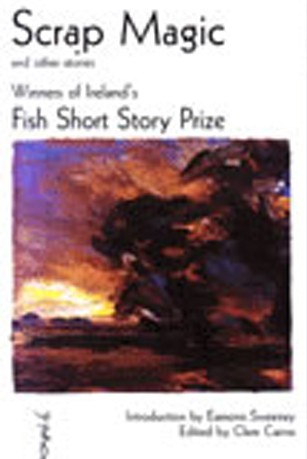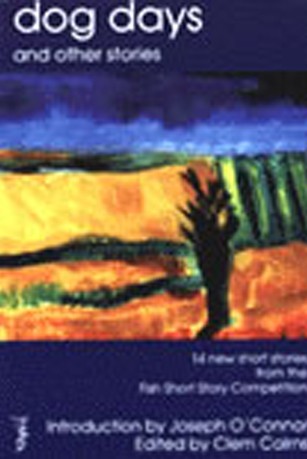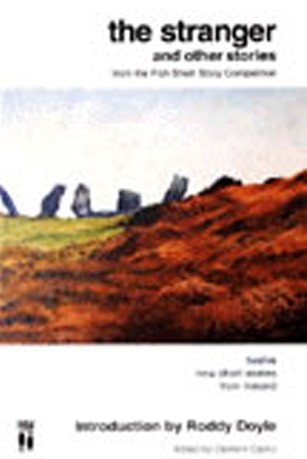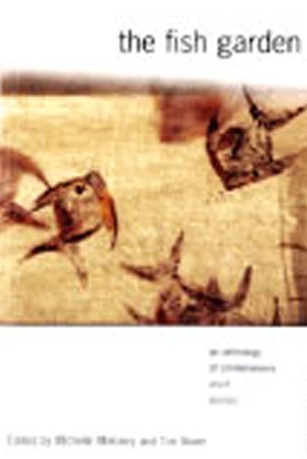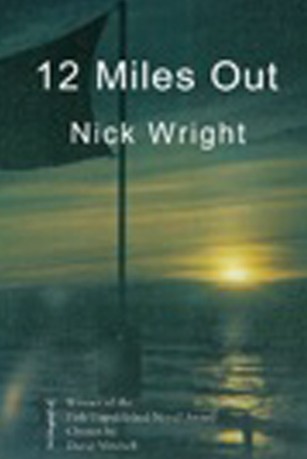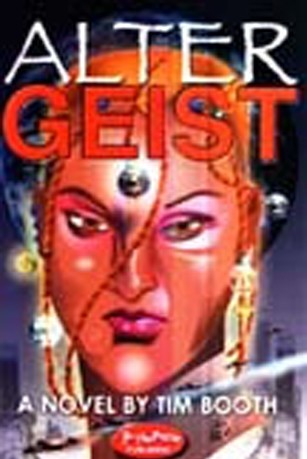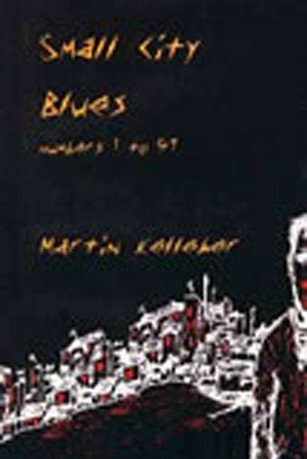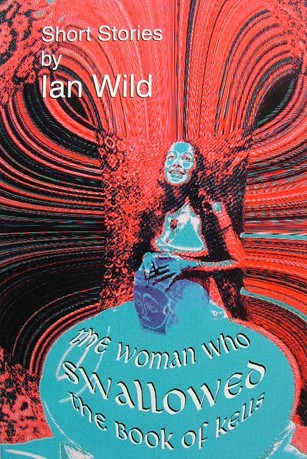Short Story Prize

Sean Lusk
– Judge 2024 –
Summary:
Closed
Judge: Sean Lusk - Novelist and short story writer
Word Limit: 5,000
Closes: 30 Nov '24
Results: 17 March '25
Anthology Published: July '25
Entry Fees: €22 / €14 subsequent entries. (Optional Critique €58)
Prizes:
Top ten stories will be published in the FISH ANTHOLOGY 2025.
1st: €3,000 plus 5 day Short Story Workshop at the West Cork Literary Festival.
2nd: €300 + Online Writing Course.
3rd: €300.
7 Honourable Mentions €200 each.
CLOSED for Entries
Fish Short Story Prize
Prizes – Rules – Entry Fees – How to Enter – ENTER NOW
The Short Story Prize 2024 is open and the winners will be published in the Fish Anthology 2025
(Fish Anthology 2024 is available in paperback and kindle)
The Fish Short Story Prize was started in 1994, and has become an established event on the literary calendar. Previous judges, Roddy Doyle and Colum McCann are honorary patrons. (Past honorary patrons were Frank McCourt and Dermot Healy).
The judge for this year is novelist and short story writer, Sean Lusk.
Sean will select 10 short stories to be published in the Fish Anthology 2025.
Tips about Short Story Writing from Sean.
10 winners will be published in The Fish Anthology 2025 which will be launched during the West Cork Literary Festival (July 2025).
Publication in the annual Fish Anthology (Fish Books) has, for many authors, been a stepping-stone to a successful writing career. See Alumni.
Critique Service is for writers who require an appraisal of their work prior to entering a writing contest, or at any time.
Prizes: Short Story Prize
Ten stories will be published in the FISH ANTHOLOGY 2025. (First, second, third and seven honourable mentions)
FIRST – €3,000 – (€1,000 of which is for travel expenses to the launch of the Anthology) plus a week long fiction writing workshop during the West Cork Literary Festival.
SECOND – €300 + Online Writing Course
THIRD – €300
Seven Honourable Mentions – €200 each
The ten published authors will each receive five copies of the Anthology and will be invited to read at the launch during the West Cork Literary Festival in July.
Rules: Short Story Prize
- No entry form is needed. Entry is online, or by post if required.
- You may enter as many times as you wish.
- This short story competition is open to writers of any nationality writing in English.
- There is no restriction on theme or style.
- Maximum number of words is 5,000.
- The winning stories must be available for the Fish Anthology, and therefore must not have been published previously.
- Fish holds publishing rights for work published in the Fish Anthology for one year after publication, after which rights revert to the author. (Please acknowledge Fish in any subsequent publications.)
- Notification of receipt of entry will normally be by email.
- The judges’ verdict is final. No correspondence will be entered into.
- Stories cannot be altered or substituted once they have been entered.
- Judging is anonymous. Name and contact details must not appear on the stories, (in the box provided if entering online, on separate sheet if entering by post).
- In order to give opportunities to emerging writers: (a) Writers who have had two short stories published in Fish Anthologies may not enter for three years after their second publication. They may enter other Fish competitions. (b) Previous first prize winners may enter again, but will not be eligible for the first prize.
- Entry fees will not be returned if stories are withdrawn after entering.
- Entry is taken as acceptance of these rules.
Entry Fees: Short Story Prize
| First Entry € |
Subsequent € |
|
| ONLINE | 22.00 | 14.00 |
| Critique (Optional) | 58.00 | 58.00 |
| Entry & Critique | 80.00 | |
| POST | 24.00 | 14.00 |
| Critique (Optional) | 65.00 | 65.00 |
How to Enter: Short Story Prize
You can enter online or by post. The cheaper option is to enter online.
– How to Enter ONLINE:
To enter online, click the green button and follow the instructions.
MAKE SURE YOUR NAME AND CONTACT DETAILS ARE NOT ON THE STORY. (Judging is done anonymously.) Your story and name are linked automatically when you enter.
– How to Enter by POST:
Post to: Fish Short Story Prize, Collingwood, Coomkeen, Durrus, Bantry, Co. Cork, P75 H704, Ireland.
Please use normal postal service (not couriers as this service is unreliable in our rural area).
Best not to use registered post as this slows receipt. (We will email you to confirm that your entry has arrived.)
Make cheques payable to Fish Publishing, using your country’s currency.
Do not sent postal orders (outside Ireland).
Print on one side of the page only in reasonable-sized type.
The Short Story Prize is judged anonymously, so please do not put your name or contact details on any of the story pages. Include all contact details on a separate sheet.
Receipt of entry will be by email.
Stories will not be returned.
.
MORE ABOUT: Sean Lusk (judge)
Sean Lusk is a short story writer and novelist, his short fiction having won the Manchester Fiction Prize, the Fish Short Story Prize and second prizes in the Bridport and Tom-Gallon Trust awards amongst others. His debut novel, The Second Sight of Zachary Cloudesley, was published in 2022 by Doubleday/Penguin, garnering five-star reviews and being described as ‘spellbinding, dashing and magical’ and, by actor and novelist Ruth Jones, as ‘the love child of Charles Dickens and Isabel Allende.’ His latest novel, A Woman of Opinion was published in July 2024, and described by The Sunday Times as ‘witty, insightful and moving’. He is now working on a novel set in mid-twentieth century Europe and the Caribbean.
You can find him at seanlusk.com , on instagram @seanluskauthor and on x @seanlusk1
Seven tips on what makes a good short story
from Sean Lusk
A short story is a very special, distinctive thing. Whereas a novel creates a complete world for the reader, with fully formed characters, a satisfying plot and an ending that, generally, brings the story to some sort of resolution, a short story works in a different way. You might think of it as a door opened just a crack, with you, the reader, peering in and seeing one half of a conversation, or the end of an argument, or a lover’s declaration being rejected, and not knowing exactly why. It is that act of imagination on the part of the reader that makes the short story so satisfying. You might be puzzled, shocked, amazed or amused, but you need to be moved.
That is not to say the short story is ‘tricksy’ or misleading, but it will almost always leave the reader with questions about why he said that, why she walked out at that moment, what the mule was doing in the back of that truck in the first place. In this way the short story grows in the reader’s mind after the last word has been read, and might keep on growing for hours, days. Perhaps forever. I know I think a lot about certain short stories even years after I last read them.
So here are seven tips for the short story writer:
Short doesn’t just mean length: it means let your reader into your story at the last possible moment and kick them out as early as you can. Don’t make the mistake of trying to squeeze a life story into three or five thousand words by racing through it or scrunching it up. Find the moment that life changed and leave the reader wondering whether the change will stick.
Every word counts. There isn’t room for lengthy description of setting or character background in a short story. The words your character(s) speak, the thoughts they think need to give us enough sense of their past to convey who they are, what they want, what they have lost or dread losing.
Think of the music of your words. In many ways a short story is closer in form to a poem than a novel. The rhythms and beats of your sentences really matter in a short story, as the shape of the language must do some of the work that might be done by whole chapters in a novel.
Control your point of view. Because you have little space to play with, you need to think carefully when switching from one character’s point of view to another’s. First person, close third person and the second person voice (the ‘you’ voice) all work well in a short story but mixing them up can make the reader queasy.
Dialogue can do a lot of work quickly in a short story but remember that your characters won’t speak in fully formed sentences, nor in the same way as each other. Read (good) plays or movie screenplays to practise your dialogue-writing skills.
Objects, even inconsequential ones like a coffee mug or a worn shoe can do a lot of work in a short story. And don’t forget that we have five senses – an unexpected smell or sound, the touch of a hand or the bitter taste of an unripe fruit can save a thousand words.
Read short stories – Grace Paley, Alice Munro, Sarah Hall, Raymond Carver. Don’t imitate but note how they capture voice, how they structure, what they leave unsaid – how little they need to say to make you understand every emotion. And write. Good luck!



